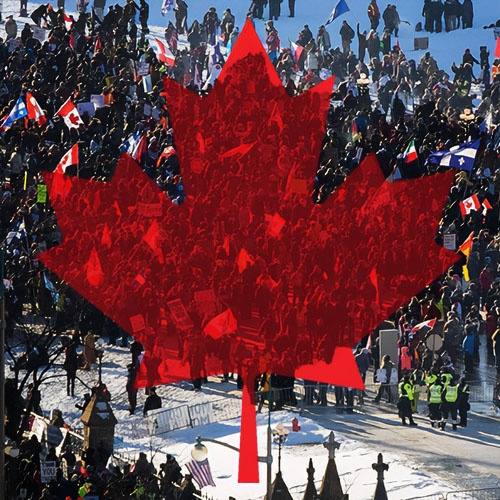Ailing American heroes sickened by toxic exposure while serving their country will finally get the benefits, they — and their families — deserve with the passage of the Pact Act.
Toxic: The Smog of War
The dangers of war aren’t limited to bullets and bombs, and coming home in one piece doesn’t always mean returning unharmed. Toxic exposure — whether from nuclear tests during World War II, Agent Orange during the Vietnam War or burn pits during the Gulf War and the War on Terror in Iraq and Afghanistan — can be equally deadly, though the injuries caused may not be visible — until it’s too late.
“Toxic wounds aren’t treated as wounds,” said comedian and activist Jon Stewart at a veterans’ rally. “It’s not treated like an IED that goes off in your body seven or eight years later, which is what it is.”
Stewart, who previously helmed Comedy Central’s The Daily Show and now hosts The Problem with Jon Stewart on Apple TV+, got involved in veterans advocacy after speaking with Rosie Torres, who co-founded Burn Pits 360 with her husband, Le Roy, a former U.S. Army captain. Since 2010, the nonprofit organization has sought to assist service members harmed by toxic smoke from burn pits — essentially warzone garbage dumps.
Stewart, a longtime supporter of World Trade Center 9/11 first responders, saw the similarities between Ground Zero exposures and the warzone exposures making veterans sick. He’s since spent the past three years working closely with veterans service organizations to get a bill passed to support affected heroes and their families.
“People are losing their jobs. People are dying,” Rosie said. “Widows, survivors, they’re begging for help. For us, the focus has always been to help these poor fighters and their families.”
Encouraged by the grassroots efforts of Vietnam veterans who sought care after exposure to Agent Orange — a powerful herbicide used by the U.S. military in Vietnam, Cambodia and Laos from 1961 to 1971 — Rosie asked veterans to tell their stories and asked families to share photos and videos of their dying loved ones to reveal the ravaging effects of burn pits. Now, after nearly 13 years, everyone’s efforts have paid off.
The Honoring Our PACT Act of 2022 received bipartisan support in the House of Representatives and the Senate, with more than 40 veterans service organizations working to promote the legislation. Even President Joe Biden showed his support for the bill before its passage. In 2015, Biden’s son Beau died at 46 from brain cancer, which was believed to be from his exposure to toxic smoke from burn pits when he served in Iraq.
America’s youngest veterans — including those from Beau’s generation — have spent more than a decade fighting for recognition of the ailments they’ve faced due to warzone burn pits. Sometimes as large as football fields, burn pits were filled with everything from classified documents, surplus weapons and ammo to medical waste, amputated limbs and human feces. The pits were soaked in jet fuel and kept burning 24/7 next to almost every military base or outpost in a combat zone.
The reasoning was simple: There is no trash pickup during war, and classified documents and discarded weapons can’t be allowed to fall into the wrong hands. But there’s a reason burning household trash is illegal in most of the U.S. Incinerating even the most basic garbage produces harmful smoke and dioxins, or toxic gases, and can cause long-term health problems, including asthma, chronic sinus infections and complex cancers. Illnesses caused by toxic exposure kill people — slowly and painfully.
“We understand we’re expendable. That’s part of being in the military,” said Shane Liermann, Deputy National Legislative Director for Disabled American Veterans (DAV) and a Marine Corps veteran. “But for a veteran to slowly die 50 years after they leave service … that’s not what we signed up for.”
Since illnesses linked to toxic exposure can take years to show, veterans are often unable to prove a service connection, which had left many without access to support services and appropriate health care. Many have been left bankrupt or suicidal.
“This country can’t be this broken,” Stewart said at a Memorial Day rally in support of burn pit legislation in Washington, D.C. “If we can’t do the simplest shit [to support veterans], we have nothing. This may be the lowest hanging fruit of the American legislative agenda. Those that took up arms in defense of this country and its constitution suffered grievous harm in that defense, and when they came home, we put them on trial. ‘You got cancer? Prove it was us.’”
“Proving it” was what got Rosie and Le Roy to start Burn Pits 360. Le Roy, a member of the Army Reserve, deployed to Iraq in 2007 and returned home with a slew of symptoms doctors couldn’t explain. He had headaches, trouble breathing and digestive issues. His first military doctor blamed it on the “Iraqi crud.” It was nothing to worry about, Le Roy was told. But he and Rosie knew it was more than that.
Years later, Rosie saw Stewart and his colleague John Feal on television. Feal, who had worked at Ground Zero doing demolition after 9/11, had partnered with Stewart to lobby for health care for first responders and other workers who had been sickened after laboring at the World Trade Center site. Rosie reached out to Feal to ask for his support, and he soon looped in Stewart.
“I still remember the day Jon Stewart FaceTimed me on Rosie’s phone [in 2019],” Le Roy recalled. “He said, ‘You’re not alone … I’m going to fight for you.’”
Burn pits have long been called this generation’s Agent Orange, and advocates have learned a lot from the veterans who had to battle for their benefits after Agent Orange exposure.
“The illnesses and the fight against Agent Orange has become a known entity,” said Pat Murray, National Legislative Service Director for Veterans of Foreign Wars (VFW). “If you say Agent Orange to someone, they say, ‘Isn’t that the poison we sprayed on troops in Vietnam?’ We’re not there yet [with burn pits], but we’re getting there with help from people like Jon Stewart.”
Now, nearly 15 years since Le Roy went to Iraq — and more than a decade after his first lung biopsy — the country saw the passage of landmark legislation which will impact generations of veterans.
“Our intent was not to start an organization,” Le Roy noted. “We just wanted to help my fellow brothers and sisters so they wouldn’t have to go through the heck we went through.”
The Honoring Our PACT Act will create a committee to review and expedite presumptive illnesses related to toxic exposure and expand health care access for veterans with those ailments. Veterans from as far back as World War II will benefit from the comprehensive legislation, and future generations will have an easier time getting recognized from as-yet-unknown exposures.
Veterans who think they may have been exposed to toxic fumes from burn pits can sign the VA’s registry. Veterans and their families can learn more about the PACT Act at VA.gov/PACT or by calling 1-800-MyVA411. Burn Pits 360 can be found at BurnPits360.org.



















